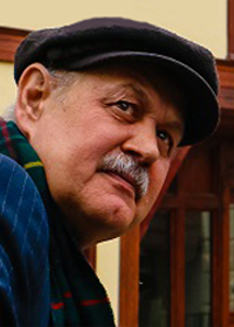The Fisek Model for SME’s Employing Child & Adolescent Workers : Group Health and Safety Services
HUMAN RıGHTS – ChıLD LABOUR
Oya Fisek*
1.
Introduction
We can neither give up on our children, nor their future. In countries where children and adolescents are working, we must take a comprehensive social politics approach besides occupational health and safety precautions in order to overcome the problems of children working in hazardous conditions.
In Turkey, we reached out to worker and employer groups who had never accessed to occupational health and safety services before by assembling an organization of 500 enterprises. Based on the employers financing the services which they believe to be beneficial, 23 years of experience and a sustainable model has come out.
The studies we started in four cities as an NGO has reached its aim. Today, the government and many people accept that this groupstudy can be realized which seemed as an impossible mission at first. Ministry of Labour and Social Security is discussing on extending the “Group Health & Safety Services” country-wide and started to implement into legislation.
The essential part of the Fisek Model is providing measures to ease the working life of children and adolescents in the short term after accepting that working of children is dependent on economic and social policies. As we frequently witness evidence of gender inequality during our studies, the model is also gender sensitive.
2.
A Special Approach for Short Term “Interventions” :
FISEK MODEL
Official statistics of Turkey indicates that 4 million children work in the country 1 million of whom are employed full-time by industry. To make workplaces “tolerable” for there children constituting 1.5% of the total population, can be achieved by providing health and social services for them.
As a first step, effect of the working conditions of the health of the working children must be determined which will give way to recommending and implementing remedies to the ones having adverse effects. To meet this requirement Fisek Model offers health services with its mobile health caravans. Along side with this health service one separate group offers occupational health and safety services while another one offers social services.i
The system was initially established with the contribution from MEAWARDS, WHO and ILO / IPEC which has been strengthened and sustained with the contribution of the employers of the small workplaces who benefit from the services.
The system has been in operation for 17 years in 3 different centers covering more than 100 small workplaces at each. From the goals set and the results obtained, the system can be defined as activities to determine the possible measures to ease adverse aspects effecting and endangering health, safety and morale of working children, and to help implement them. Preparing models, and carrying out various activities such as symposiums, seminars, publications etc. are also part of the system to help promote or initiate long term policies. Multi- disciplinary approach has also been adopted.
2.1. Social Measures :
Social Measures can be considered in two main categories :
2.1.1.Programmes are implemented to fight discrimination against girls
- Intensive training programmes are carried out
- Vocational courses are arranged and implemented
2.1.2. Activities are carried out to create more leisure time during which they can re-gain their child identity
- Children will enjoy their childhood, play and meet with other children.
- Working hours will be shortened, youth centres and holiday villages will be built to make them spend their leisure time together.
- Children will continue their education.
- Training seminars should be organized to give them both occupational and health-social-cultural information.
2.2. Medical and Technical Measures : As part of medical and technical measures two main activities are carried out by a multi-disciplinary team.
2.2.1. Medical examination&biological monitoring of working children are carried out.
- To prevent children from being employed in jobs inappropriate for their power and health examinations are carried out in job entry.
- To prevent their work to harm their health periodical health checks are performed at least two times a year.
2.2.2. Working environment of their workplaces are tried to be improved
- Measurements of air, noise, dust etc. and risk analysis are made in the working environment.
- The relevant consultancy service including training are provided and if deemed necessary support in also provided for implementation.
3.
Conclusions
As part of their basic human rights, children must live their childhood, have proper leisure time and evaluate it for their good and benefit, must have good education, must be kept away from the problems of unemployment, low income or poverty. Humanbeings can survive as they fight for their basic rights because having these rights written on documents has not been enough to secure them Therefore, increasing number of children have been urged to start working at early ages thus eliminating many of their basic human rights. In addition globalization and frequent periodical economical crises also help extension of child labor via considerable increases in poverty.
As the basic human rights jeopardized, more and more duties must be met by non-governmental organizations (NGO). They must inform the society and make it more sensitive to such issues and by new approaches and experiments them must survive the ideal of solidarity. As an NGO, Fisek Institute has developed her own model on working children and has offered it to the benefit of the society.
By minimizing physical, mental and morale injuries of the children working at small workplaces via the services provided by the Fisek Model, workplaces have been made “tolerable” for temporary employment of children which proves that improved workplaces for them is not just a dream but an achievable goal.
i: Fisek A.G. (1998) : “Health Services for Working Children in Turkey”, XXII.International Congress of Pediatrics (9-14 August 1998, Amsterdam), International Pediatric Association.
